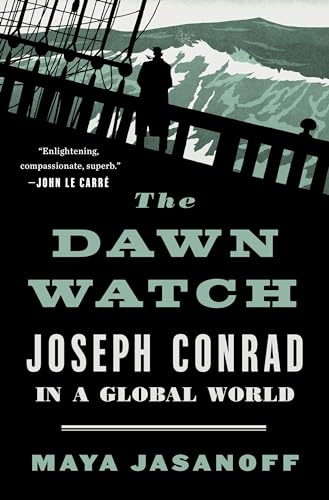I’ve been on leave from teaching this year, so it’s been a uniquely good 12 months of reading for me, a year when I’ve read for only one reason: fun. Now when I say fun… I’m a book nerd. So I tend to take on “reading projects.” The first was to work toward becoming a Joseph Conrad completist. I’m almost there. I warmed up with critic Maya Jasanoff’s The Dawn Watch: Conrad in a Global World, which granted me permission to remember the capacious scope of his perspective, his humanistic genius. His masterwork was hard work, but Nostromo belongs on the shelf of both the most important and most difficult of the 20th century. The Secret Agent blew the top of my head off—it’s funny and deeply relevant to our moment, about a terrorist bombing gone horribly wrong. Under Western Eyes is all I got left. 2018 isn’t over yet.
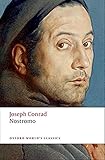

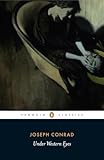


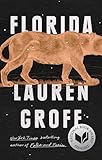
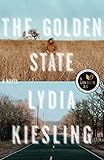
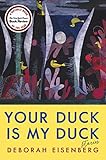

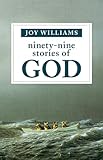
 But then much fun came in reading whatever, whenever. That started with a heavy dose of Denis Johnson. The new posthumous collection of his short stories, The Largesse of the Sea Maiden, is uneven, but the title story is one of the most sublime pieces of fiction I’ve ever read. I do not understand how its series of narratives work together and I don’t want to. I finally read Fiskadoro, which deserves more credit than it gets for starting the cli-fi wave—it’s set in a Florida, a number of years after global ecological catastrophe hits, and everyone thinks Bob Marley is god. All of which led me to Lauren Groff’s Florida. “Snake Stories,” the finest story therein, is as good as fiction gets. Which pushed me toward Lydia Kiesling’s The Golden State, which from the first paragraph of talky lyrical cadenced prose and sharply depicted parental verisimilitude (I coined that and you can’t have it!) had me hooked. That led me on to Deborah Eisenberg’s Your Duck Is My Duck, which is her most accessible and relevant book to date. Wow is she smart/funny. Which led me to finishing up both Joy Williams’s The Visiting Privilege, and Ninety-Nine Stories of God, which are as different as books by one author come and both revelatory. Which led me on to read three stories from Mavis Gallant’s Collected Stories. In the intro of that book, Gallant implores her reader to read her as she’s meant to be read—one story at a time, put it down for as long as a year or more, pick it back up. So that’s what I do. “The Moslem Wife” is my new favorite.
But then much fun came in reading whatever, whenever. That started with a heavy dose of Denis Johnson. The new posthumous collection of his short stories, The Largesse of the Sea Maiden, is uneven, but the title story is one of the most sublime pieces of fiction I’ve ever read. I do not understand how its series of narratives work together and I don’t want to. I finally read Fiskadoro, which deserves more credit than it gets for starting the cli-fi wave—it’s set in a Florida, a number of years after global ecological catastrophe hits, and everyone thinks Bob Marley is god. All of which led me to Lauren Groff’s Florida. “Snake Stories,” the finest story therein, is as good as fiction gets. Which pushed me toward Lydia Kiesling’s The Golden State, which from the first paragraph of talky lyrical cadenced prose and sharply depicted parental verisimilitude (I coined that and you can’t have it!) had me hooked. That led me on to Deborah Eisenberg’s Your Duck Is My Duck, which is her most accessible and relevant book to date. Wow is she smart/funny. Which led me to finishing up both Joy Williams’s The Visiting Privilege, and Ninety-Nine Stories of God, which are as different as books by one author come and both revelatory. Which led me on to read three stories from Mavis Gallant’s Collected Stories. In the intro of that book, Gallant implores her reader to read her as she’s meant to be read—one story at a time, put it down for as long as a year or more, pick it back up. So that’s what I do. “The Moslem Wife” is my new favorite.
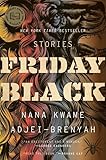

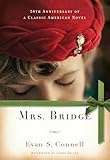
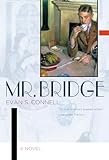
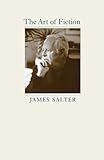
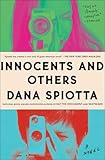
 That’s not what I did for Nana Kwame Adjei-Brenyah’s Friday Black, a book of satirical stories in the Saunders/Vonnegut mode that’s as gleefully violent as it is gleefully intelligent. While I was reading that one I decided I should really read Ottessa Moshfegh’s novella McGlue—also violent, intelligent, and gleefully so. I’ve always wanted to read more of a writer I suspect Moshfegh is disdainful of, Evan S. Connell, and having already been through Mrs Bridge I read Mr Bridge, which is elliptical and wry and smart. Which led me on to James Salter’s The Art of Fiction, which is just a talk he gave at UVA before he died, but which is full of useful advice from one of the best prose stylists of the 20th century. That led me to Dana Spiotta’s Innocents and Others—Spiotta is one of the most interesting stylists of the 21st, and all her powers are on display here. And that led me on to a new sampling of the work of one of my heroes, Grace Paley, The Grace Paley Reader, which FSG put out last year. I’ve read all her stories, but seeing them paired with her poetry opened my mind to her even more.
That’s not what I did for Nana Kwame Adjei-Brenyah’s Friday Black, a book of satirical stories in the Saunders/Vonnegut mode that’s as gleefully violent as it is gleefully intelligent. While I was reading that one I decided I should really read Ottessa Moshfegh’s novella McGlue—also violent, intelligent, and gleefully so. I’ve always wanted to read more of a writer I suspect Moshfegh is disdainful of, Evan S. Connell, and having already been through Mrs Bridge I read Mr Bridge, which is elliptical and wry and smart. Which led me on to James Salter’s The Art of Fiction, which is just a talk he gave at UVA before he died, but which is full of useful advice from one of the best prose stylists of the 20th century. That led me to Dana Spiotta’s Innocents and Others—Spiotta is one of the most interesting stylists of the 21st, and all her powers are on display here. And that led me on to a new sampling of the work of one of my heroes, Grace Paley, The Grace Paley Reader, which FSG put out last year. I’ve read all her stories, but seeing them paired with her poetry opened my mind to her even more.

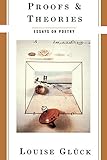
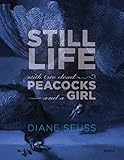
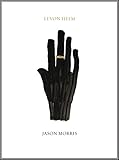
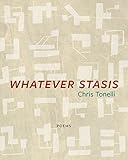

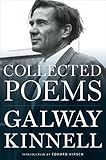

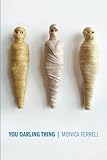 So that led me on to poetry! I like to read all of one poet every summer. This past summer it was Louise Glück. Hers might be the toughest-nosed, lithest and sharpest project of our lifetimes. And her books of prose about poetry, American Originality and Proofs and Theories, demand to be read and reread. I also fell in love with the wry perspicacity of Dianne Seuss, whose Still Life with Two Dead Peacocks and a Girl slew me. Jason Morris’s Levon Helm is full of brilliant right-hand turns, turns of phrase and hard-won truths, and is the winner of the best title in the history of books. Chris Tonelli’s second book, Whatever Stasis (second-best title), made me laugh, then think, which is the right order. My colleague Airea Dee Matthews won the Yale Younger Prize a couple years back, and that book, Simulacra, is as razor-smart as they come, chock full of Plath and Stein and genius. I reread it twice. I also slammed through Galway Kinnell’s Collected Poems, and I never knew how weird and smart his long poem “The Avenue Bearing the Initial of Christ into the World” was. Which prepped me for the extravagant original voice Daniel Borzutsky brings to The Performance of Becoming Human. I’ll read everything of his now. Same for Monica Ferrell. Her new book You Darling Thing is full of poems that are lyrical, spare, dry as bone.
So that led me on to poetry! I like to read all of one poet every summer. This past summer it was Louise Glück. Hers might be the toughest-nosed, lithest and sharpest project of our lifetimes. And her books of prose about poetry, American Originality and Proofs and Theories, demand to be read and reread. I also fell in love with the wry perspicacity of Dianne Seuss, whose Still Life with Two Dead Peacocks and a Girl slew me. Jason Morris’s Levon Helm is full of brilliant right-hand turns, turns of phrase and hard-won truths, and is the winner of the best title in the history of books. Chris Tonelli’s second book, Whatever Stasis (second-best title), made me laugh, then think, which is the right order. My colleague Airea Dee Matthews won the Yale Younger Prize a couple years back, and that book, Simulacra, is as razor-smart as they come, chock full of Plath and Stein and genius. I reread it twice. I also slammed through Galway Kinnell’s Collected Poems, and I never knew how weird and smart his long poem “The Avenue Bearing the Initial of Christ into the World” was. Which prepped me for the extravagant original voice Daniel Borzutsky brings to The Performance of Becoming Human. I’ll read everything of his now. Same for Monica Ferrell. Her new book You Darling Thing is full of poems that are lyrical, spare, dry as bone.
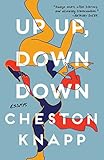
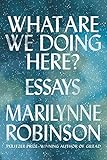
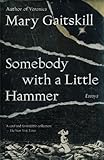

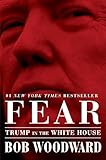
 OK so wow this is getting long, but being on leave apparently I had a lot of time to read. Cheston Knapp’s debut essay collection Up Up, Down Down is as intelligent as any book I’ve read this year, and he is a true inheritor to DFW’s explosive genius. I would gladly read Marilynne Robinson on the history of drywall, and What Are We Doing Here? is about a lot more interesting stuff than that, including the most erudite readings of the ills of American culture published this year. The title essay should be required reading for anyone who teaches at, attends or has attended a college or university in America. Mary Gaitskill is also a longtime favorite, and her Somebody with a Little Hammer is like a Christmas gift for every day of the year—“Lost Cat,” the long personal essay at its center, will now be on my syllabus every year. I clenched my teeth and everything else through Michael Wolff’s Fire and Fury and Bob Woodward’s Fear. The latter was just godawful. Maybe next year we could do the Year in Attempting to Unread? Oh, and I just finished Jill Lepore’s new long history of the U.S. through the lens of Il Douche’s presidency, These Truths, where I learned more about polling and the failings of our Constitutional democracy than I thought possible.
OK so wow this is getting long, but being on leave apparently I had a lot of time to read. Cheston Knapp’s debut essay collection Up Up, Down Down is as intelligent as any book I’ve read this year, and he is a true inheritor to DFW’s explosive genius. I would gladly read Marilynne Robinson on the history of drywall, and What Are We Doing Here? is about a lot more interesting stuff than that, including the most erudite readings of the ills of American culture published this year. The title essay should be required reading for anyone who teaches at, attends or has attended a college or university in America. Mary Gaitskill is also a longtime favorite, and her Somebody with a Little Hammer is like a Christmas gift for every day of the year—“Lost Cat,” the long personal essay at its center, will now be on my syllabus every year. I clenched my teeth and everything else through Michael Wolff’s Fire and Fury and Bob Woodward’s Fear. The latter was just godawful. Maybe next year we could do the Year in Attempting to Unread? Oh, and I just finished Jill Lepore’s new long history of the U.S. through the lens of Il Douche’s presidency, These Truths, where I learned more about polling and the failings of our Constitutional democracy than I thought possible.
OK OK this is getting long but I feel like we all sometimes forget that we read journals like the air we breathe. This was a particularly good year for The Paris Review—editor Emily Nemens’s first issue had exciting new work by Claire Vaye Watkins and Louise Glück. Tin House is on fire, and the Candy issue was a winner, with an essay by Rebecca Makkai about Hungary that’s right in my wheelhouse, and a deeply weird dark story by Julia Elliott. The May/June issue of The Kenyon Review alone had poems by Bruce Smith, Terrance Hayes and Jorie Graham. Bradford Morrow’s Conjunctions is always great, and its “Being Bodies” included an essay by Rick Moody on Lazarus that I’ve been thinking about since. The last issue of Salmagundi had essays on cultural appropriation by Allan Gurganus and Thomas Chatterton Williams that clarified things for me. And let’s all shed a tear for Glimmer Train, a tiny mag that launched a thousand story collections. I just read an issue with stories by Jamel Brinkley and future star Alexandra Chang, and it will be sorely missed.
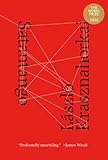

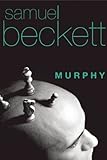
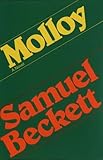
 OK OK OK I’m almost there I promise! This fall I went on a jag of reading two contemporary European writers I think will be up for Nobels in the next decade. The first is Hungarian novelist Lazlo Krasznahorkai. He’s already been short-listed for the International Booker Prize twice, and won once, and with each of his books New Directions puts out his legend grows. His masterwork Satantango feels like the starting point—or did, until The World Goes On came out this year. It’s a beautiful object, and as naturally both a story collection and a novel as anything I know. This also sent me back to reread Samuel Beckett’s Murphy and Molloy, as I think Krasznahorkai might, along with Coetzee and maybe Bernhard, be the only writer I’ve read who is a true inheritor of the Beckett strain. I had a similar excitement for German writer Jenny Erpenbeck, whose Go, Went, Gone is maybe the best fiction yet written about the refugee crisis. I had to go back and re-read the last two pages multiple times to fully appreciate their genius.
OK OK OK I’m almost there I promise! This fall I went on a jag of reading two contemporary European writers I think will be up for Nobels in the next decade. The first is Hungarian novelist Lazlo Krasznahorkai. He’s already been short-listed for the International Booker Prize twice, and won once, and with each of his books New Directions puts out his legend grows. His masterwork Satantango feels like the starting point—or did, until The World Goes On came out this year. It’s a beautiful object, and as naturally both a story collection and a novel as anything I know. This also sent me back to reread Samuel Beckett’s Murphy and Molloy, as I think Krasznahorkai might, along with Coetzee and maybe Bernhard, be the only writer I’ve read who is a true inheritor of the Beckett strain. I had a similar excitement for German writer Jenny Erpenbeck, whose Go, Went, Gone is maybe the best fiction yet written about the refugee crisis. I had to go back and re-read the last two pages multiple times to fully appreciate their genius.
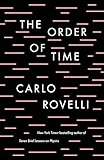
 OK OK OK OK! I’ll stop but only after saying that my favorite mode of reading is reading side-to-side religious texts and contemporary books on physics, and then thinking a lot about cosmology. It keeps me sane. My three favorite reads of 2018 were Italian theoretical physicist Carlo Rovelli’s The Order of Time, Adam Becker’s What Is Real, and the audio version of Richard Feynman’s The Feynman Lectures. The audiobook is Feynman lecturing at Stanford in the 1960s, and it’s like listening to a character from The Godfather telling a rapt audience about how quantum physics works. Among other things it’ll make you nostalgic for heavy regional accents.
OK OK OK OK! I’ll stop but only after saying that my favorite mode of reading is reading side-to-side religious texts and contemporary books on physics, and then thinking a lot about cosmology. It keeps me sane. My three favorite reads of 2018 were Italian theoretical physicist Carlo Rovelli’s The Order of Time, Adam Becker’s What Is Real, and the audio version of Richard Feynman’s The Feynman Lectures. The audiobook is Feynman lecturing at Stanford in the 1960s, and it’s like listening to a character from The Godfather telling a rapt audience about how quantum physics works. Among other things it’ll make you nostalgic for heavy regional accents.

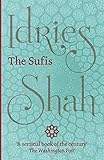
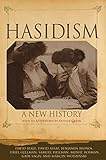
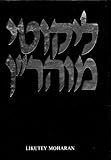 Alongside that reading, I read the Quran, and Idries Shah’s The Sufis, along with David Biale’s epic history of Hasidism, called… wait for it… Hasidism. Biale finished the book alongside a dozen other scholars, and it is and will be the standard on its subject for decades to come. And lastly, I’ve been reading the teachings of Reb Nachman, father of Breslov Hasidism, with a rabbi friend. This reading cuts against the grain of everything above. It is not to grow informed or to seek new aesthetics. It’s a minimalist endeavor. Every page of his Likutey Moharan is a revelation and an enigma, and it calls to be read very, very slowly. Like, three or four pages a week. It slows me, calms my mind and realigns me. We should all find time for reading projects like that.
Alongside that reading, I read the Quran, and Idries Shah’s The Sufis, along with David Biale’s epic history of Hasidism, called… wait for it… Hasidism. Biale finished the book alongside a dozen other scholars, and it is and will be the standard on its subject for decades to come. And lastly, I’ve been reading the teachings of Reb Nachman, father of Breslov Hasidism, with a rabbi friend. This reading cuts against the grain of everything above. It is not to grow informed or to seek new aesthetics. It’s a minimalist endeavor. Every page of his Likutey Moharan is a revelation and an enigma, and it calls to be read very, very slowly. Like, three or four pages a week. It slows me, calms my mind and realigns me. We should all find time for reading projects like that.
More from A Year in Reading 2018
Don’t miss: A Year in Reading 2017, 2016, 2015, 2014, 2013, 2012, 2011, 2010, 2009, 2008, 2007, 2006, 2005
